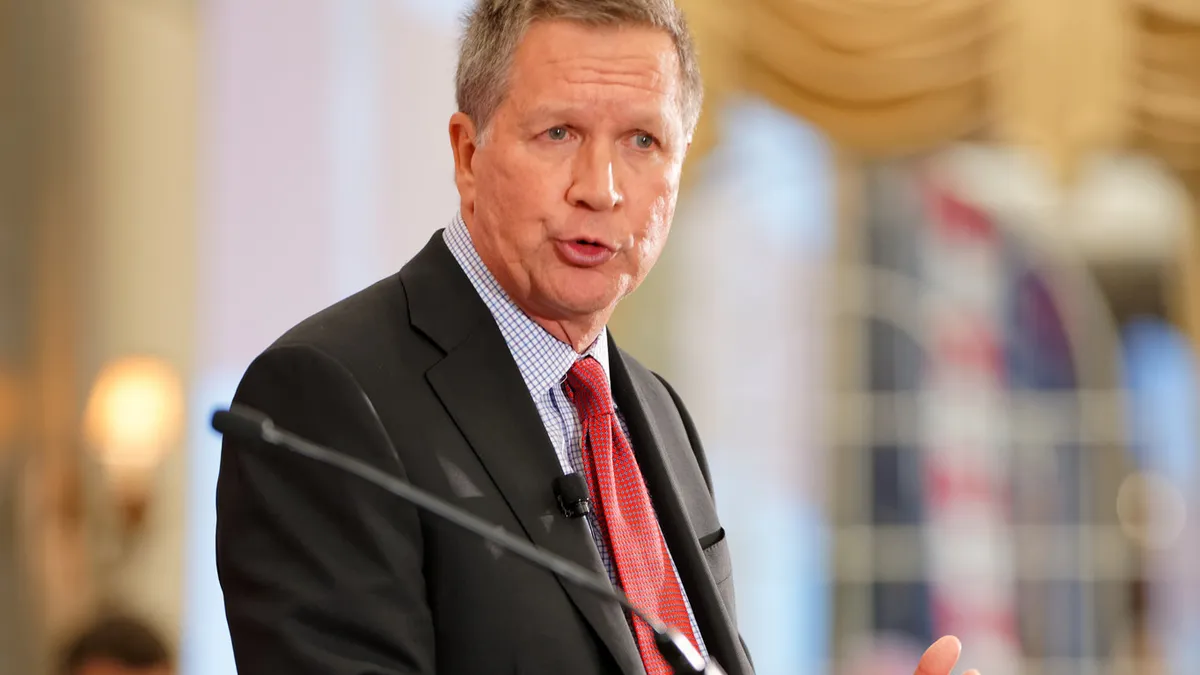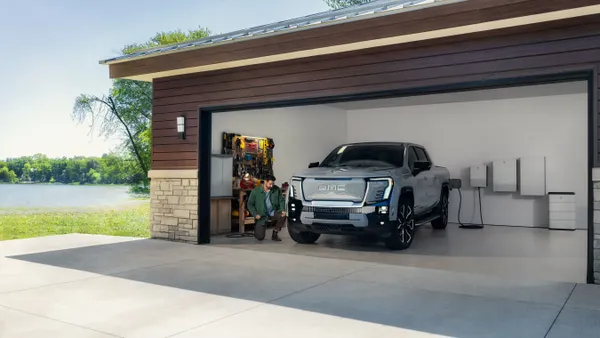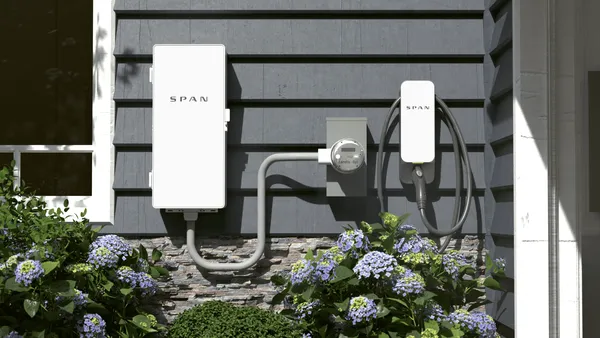Dive Brief:
- Ohio's battle over its clean energy standards has become a football in the national race for president, Columbus Business First reports. Gov. John Kasich (R), who is seeking the Republican nomination but trails in the polls, said at a New Hampshire campaign event this week that he will return the state to its original goals if opponents persist in trying to keep them frozen.
- In 2014, Kasich signed a bill that froze the state's renewable energy and energy efficiency standards for two years. But last year, a 12-member panel of Ohio state legislators recommended that freeze be kept indefinitely, which Kasich then called "unacceptable."
- In addition, Kasich told the crowd, "if the legislature wants to gut [the clean energy standards], then I’m going to go back to the goal that we had, which was unpalatable."
Dive Insight:
Ohio has a mixed record on energy efficiency and renewable energy, the news outlet reports, but Gov. Kasich is using his position in the ongoing fight to demonstrate strength before national audiences. Columbus Business First reported that the governor told a New Hampshire campaign crowd, "I’m not playing around with this."
Columbus Business First also reports Kasich discussed solar and wind energy and touted battery storage as well at the event this week.
Ohio took many green energy advocates by surprise in 2014 when the state froze its efficiency and renewables mandates at 2.5% until 2017. That was just supposed to be a temporary freeze, but then last year lawmakers pushed to make the freeze indefinite. Beyond the indefinite freeze, the study committee also suggested that the state move to renewable and efficiency incentives instead of mandatory goals, streamline the approval process for efficiency programs and ensure that the Ohio EPA cannot make energy policy for the state, regardless of what happens with the Clean Power Plan.
Ohio's renewables and efficiency mandates passed overwhelmingly in 2008, requiring utilities to source 25% of their electricity from alternative sources (including nuclear) by 2025, with half that amount coming from renewables, and compelled them to cut power usage 22% by that time.
As the news outlet reports, Kasich framed up the debate as such: "Some wanted to basically, in my opinion, stop the development of solar and wind and even efficiency standards. They said, ‘OK, it’s good enough.’ I’m like, ‘That’s not acceptable.’"















